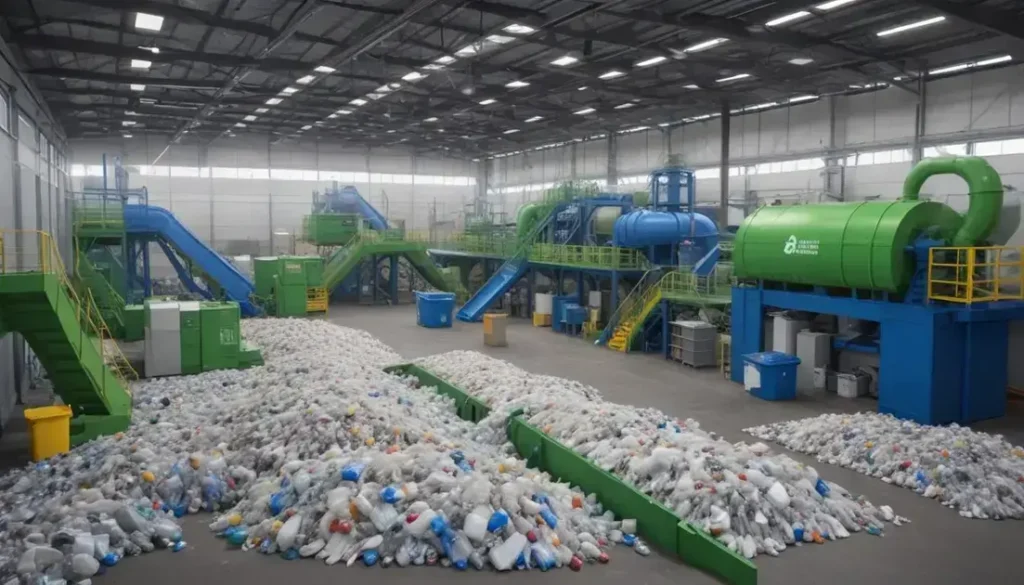The battery industry is increasingly vital as global demand rises, necessitating strong local manufacturing to enhance energy security, create jobs, and support sustainability through green technologies.
In recent developments regarding the battery industry, Emma Nehrenheim has been appointed Managing Director of the European Battery Alliance (EBA). This is a pivotal moment for businesses as Europe strengthens its local battery production capabilities.
Emma Nehrenheim’s Leadership Role in EBA
Emma Nehrenheim’s recent appointment as Managing Director of the European Battery Alliance (EBA) marks a significant moment for the battery industry. With a strong focus on sustainability and innovation, Nehrenheim brings a wealth of experience that is crucial for leading EBA’s initiatives.
A major aspect of her role will be to strengthen the partnership between industry hubs and stakeholders across Europe. By fostering collaboration, she aims to innovate manufacturing processes and address critical supply chain challenges. The emphasis will be on developing a competitive local battery production ecosystem that can effectively meet the growing demand.
Furthermore, as leaders like Nehrenheim step forward, there is an increased need to balance environmental concerns with economic growth. Her vision includes not just enhancing production capabilities but also ensuring that these advancements are aligned with green practices. This includes utilizing sustainable materials and reducing the carbon footprint.
As the EU navigates complex regulations and competitive pressures, Nehrenheim’s proactive leadership will be vital. Her ability to engage with various stakeholders will play a crucial role in shaping EBA’s future directions and improving Europe’s position in the global battery market.
The Urgency of Strengthening Local Battery Manufacturing
The growing demand for batteries, particularly in electric vehicles, highlights the urgency of strengthening local battery manufacturing. As global supply chains face disruptions, regions need to focus on building resilient infrastructures.
Developing local manufacturing capabilities can significantly reduce dependency on imports. This shift is essential for achieving sustainability goals and enhancing energy security. By investing in domestic production, countries can boost their economies and create thousands of jobs.
Furthermore, local manufacturers can innovate tailored solutions that address specific regional needs. This adaptability is crucial for responding to consumer demands and market trends swiftly. As the technology evolves, local firms must prioritize research and development, ensuring they remain competitive.
The transition towards local manufacturing also paves the way for adopting green technologies. Utilizing renewable energy sources in production processes minimizes environmental impacts and supports the global push for sustainability.
In conclusion, strengthening local battery manufacturing is not merely a strategic choice; it is vital for economic growth, job creation, and environmental responsibility. Stakeholders must collaborate to establish robust frameworks that support this transition effectively.
In Conclusion: The Future of Local Battery Manufacturing
Strengthening local battery manufacturing is not just a necessity; it is a critical step towards a sustainable future. With increasing demand for batteries, especially for electric vehicles, countries must focus on boosting their production capabilities.
By investing in local industries, nations can reduce dependency on imports while driving economic growth and job creation. Not to mention, this shift supports the global shift towards more environmentally friendly solutions.
As stakeholders come together to promote innovations and green technologies, the future of the battery industry looks promising. Investing in local manufacturing will not only ensure a stable supply but also contribute to a cleaner and more sustainable environment.
In summary, the urgency of local battery manufacturing cannot be overstated. It is a journey that requires commitment and collaboration, but the benefits will be far-reaching and lasting.
Frequently Asked Questions
Why is local battery manufacturing important?
Local battery manufacturing is crucial for reducing dependency on imports, boosting economic growth, and creating jobs. It also supports sustainability efforts by promoting green technologies.
How can strengthening local battery production impact the economy?
By increasing local production, countries can enhance their economic stability, create thousands of job opportunities, and encourage innovation within the industry.
What role does sustainability play in battery manufacturing?
Sustainability in battery manufacturing involves using eco-friendly materials and renewable energy sources, which helps minimize environmental impact and aligns with global sustainability goals.
What are some challenges faced by local battery manufacturers?
Challenges include competition from established global players, high initial investments, and the need for advanced technology and skilled workforce to operate efficiently.
How can collaboration improve local battery manufacturing efforts?
Collaboration among industries, governments, and research institutions can enhance resources, knowledge sharing, and technology development, leading to stronger local production capabilities.
What future trends can we expect in the battery industry?
The battery industry is likely to see increased innovation in energy storage solutions, advancements in battery technology, and a greater focus on sustainable practices as demand continues to rise.


